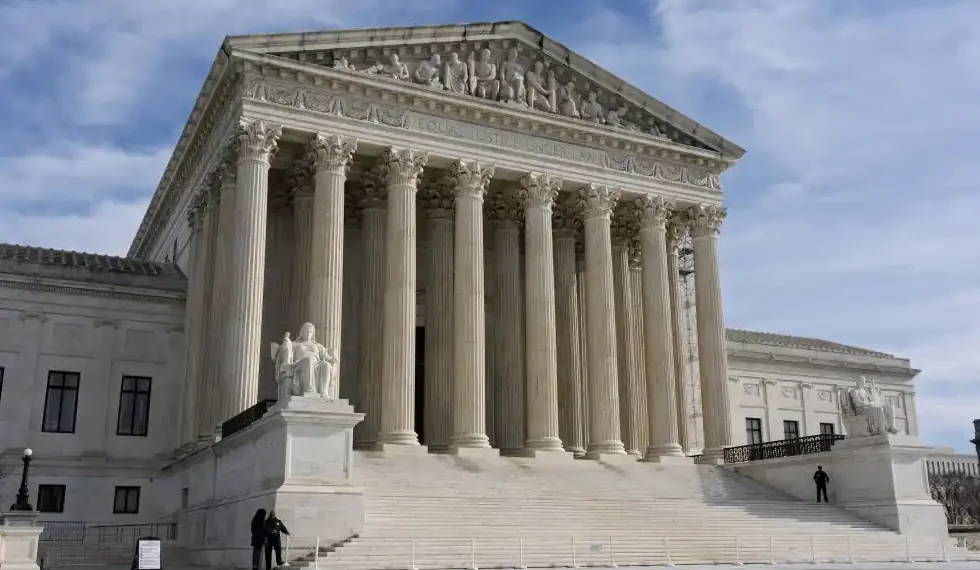As Supreme Court Term Winds Down, Big Decisions Still Loom — Including Birthright Citizenship and LGBTQ Curriculum
WASHINGTON (AP) — With June ticking away, the U.S. Supreme Court is entering the final stretch of its term — and the justices still have big decisions to hand down.
While emergency appeals from the Trump administration have recently grabbed headlines, the court also has 10 major cases left to decide, including hot-button issues like birthright citizenship, religious rights in public schools, congressional redistricting, and online pornography laws.
Here’s a breakdown of the most important cases still awaiting rulings — and why they matter:
1. Birthright Citizenship and the Power of Nationwide Court Orders
One of the most consequential cases involves the Trump administration’s attempt to end birthright citizenship for children born in the U.S. to undocumented immigrants — a right that has stood unchallenged for over 125 years.
Lower courts blocked Trump’s executive order, and the Supreme Court took the unusual step of hearing an emergency appeal. At stake isn’t just the citizenship policy — it’s also whether lower court judges should be allowed to issue nationwide injunctions, a powerful legal tool that has frustrated both Republican and Democratic administrations in recent years.
What’s at risk?
If the Supreme Court sides with the administration, it could reshape how federal policies are blocked or enforced across the country. But during arguments, justices appeared hesitant to let the citizenship restrictions go into effect, even temporarily.
2. Religious Rights vs. LGBTQ-Inclusive Curriculum in Maryland Schools
Another closely watched case could expand the court’s already growing track record of siding with religious rights claims.
Parents in suburban Maryland are challenging their local school district’s decision to require lessons using LGBTQ-themed storybooks like Prince and Knight and Uncle Bobby’s Wedding. They want the right to opt their children out — something they were once allowed to do before the district changed its policy, citing classroom disruptions.
Only sex education currently allows for opt-outs in the county’s curriculum. But the justices seemed inclined to side with the parents.
Why it matters:
This case is unfolding as schools across the country grapple with curriculum fights and book bans, making it a potential bellwether for how far religious objections can go in shaping public education.
3. Louisiana Redistricting: Race, Politics, and Voting Rights Collide
The court is once again weighing the legality of Louisiana’s congressional maps — and the outcome could affect future redistricting lawsuits nationwide.
After striking down two previous maps, the justices are now reviewing one that added a second majority-Black district — which elected a Black Democrat in 2024. A lower court found that the map leaned too heavily on race in its design, while state officials argue political strategy was the driving force.
What’s at stake?
Several conservative justices suggested during arguments that they may side with Louisiana — a move that could make it much harder to challenge redistricting plans under the Voting Rights Act in the future.
4. Can States Require ID to View Porn? Texas Law Faces Supreme Court Test
Texas is leading a national push to restrict kids’ access to online pornography through age-verification laws. But critics — including the adult-entertainment industry — say the Texas law goes too far, threatening adults’ privacy and free speech rights by requiring users to submit personal ID data that could be hacked or tracked.
The legal question:
Does this law violate the First Amendment? Justices seemed open to upholding the Texas law, but also hinted they might send the case back to a lower court for a more rigorous review.
Already Decided: Transgender Healthcare Case
This week, the court handed down one of its most closely watched decisions, upholding Tennessee’s ban on certain medical treatments for transgender minors. The ruling marks a significant moment in the national debate over trans rights and youth healthcare.
With just days left before the end-of-June deadline, the Supreme Court is racing to deliver opinions that could reshape U.S. law on immigration, education, race, free speech, and more — in what’s turning out to be a blockbuster finish to the term.
This article was rewritten by JournosNews.com based on verified reporting from trusted sources. The content has been independently reviewed, fact-checked, and edited for accuracy, neutrality, tone, and global readability in accordance with Google News and AdSense standards.
All opinions, quotes, or statements from contributors, experts, or sourced organizations do not necessarily reflect the views of JournosNews.com. JournosNews.com maintains full editorial independence from any external funders, sponsors, or organizations.
Stay informed with JournosNews.com — your trusted source for verified global reporting and in-depth analysis. Follow us on Google News, BlueSky, and X for real-time updates.














